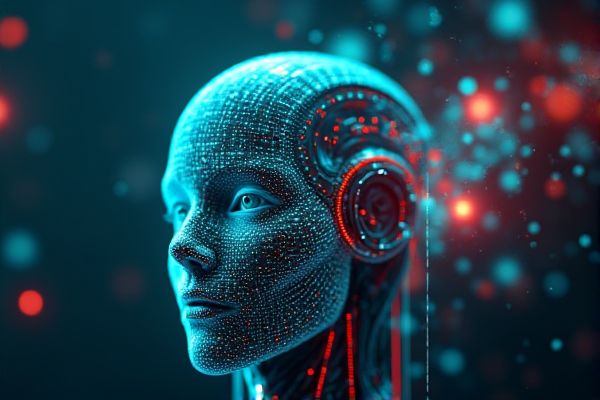
AI technologies enhance various aspects of film production, streamlining tasks such as scriptwriting, casting, and editing. Machine learning algorithms can analyze audience preferences to predict box office success, enabling filmmakers to make informed decisions. Deepfake technology allows for realistic visual effects and character recreations, opening new creative possibilities. Automated editing software accelerates post-production, reducing time and costs while maintaining high-quality results.
AI usage in film production
Script Analysis and Development
AI can streamline script analysis by identifying trends and themes, which can enhance the development process. For instance, institutions like the University of Southern California are increasingly integrating AI tools to aid screenwriters in refining their narratives. This technology may predict audience engagement based on historical data, potentially increasing the chances of a film's success. By analyzing large datasets, AI tools can provide filmmakers with actionable insights, offering a competitive edge in the industry.
Visual Effects and CGI Enhancement
AI tools can streamline processes in film production, notably in areas like visual effects and CGI enhancement. For example, AI algorithms can analyze footage to assist in the automatic generation of realistic effects, reducing both time and costs. This technology has the potential to improve creativity, allowing filmmakers to experiment with innovative visuals that were previously labor-intensive. Companies like Industrial Light & Magic are already exploring these possibilities, showcasing the competitive advantages of integrating AI in their workflows.
Automated Editing Tools
Automated editing tools can significantly enhance efficiency in film production, allowing editors to focus on creative decisions rather than repetitive tasks. These tools often use algorithms to analyze footage and suggest cuts, reducing the time spent during the editing phase. Companies like Adobe are incorporating AI-driven features in their software to streamline workflows, providing advantages in project turnaround time. The potential benefits include improved consistency and the ability to handle larger volumes of content, which can be pivotal for studios managing multiple projects simultaneously.
Audience Sentiment Prediction
AI in film production can enhance audience sentiment prediction, allowing filmmakers to tailor their content more effectively. By analyzing social media reactions and viewer reviews, studios can gauge public interest and emotional response. Companies like Netflix utilize AI algorithms to predict which genres or themes may resonate most with their viewers. This technology offers the possibility of improving marketing strategies and increasing viewer engagement.
Casting and Talent Selection
AI can analyze vast amounts of data to identify potential talent for film casting, streamlining the selection process. By evaluating actor profiles and past performances, AI may enhance the likelihood of finding suitable candidates that fit specific roles. For instance, studios like Warner Bros. are exploring AI tools to optimize casting decisions and reduce time spent in auditions. This technology presents the chance to leverage data-driven insights for a more efficient production workflow.
Real-time Motion Capture
AI usage in film production can enhance the accuracy and efficiency of real-time motion capture techniques. By utilizing advanced algorithms, filmmakers can create more lifelike animations and streamline post-production processes, potentially reducing costs. Institutions like the University of Southern California are exploring these technologies to improve visual effects in their projects. The possibility of integrating AI in this manner offers filmmakers a chance to innovate storytelling through more immersive experiences.
Personalized Content Recommendations
AI usage in film production can streamline processes such as script analysis and casting decisions, enhancing efficiency. Personalized content recommendations from platforms like Netflix leverage viewer data to suggest films tailored to individual preferences. This technology increases the likelihood of viewer satisfaction and engagement. The potential for higher audience retention rates offers a clear advantage for production companies aiming to maximize their reach.
Budget Forecasting and Management
AI can enhance budget forecasting and management in film production by analyzing financial data and predicting future expenses. For example, AI algorithms can assess historical budget performance in studios like Warner Bros., helping to identify cost-saving opportunities. This technology can improve accuracy in financial planning, reducing the risk of overspending. Employing AI tools may allow filmmakers to allocate resources more efficiently, potentially increasing the overall profitability of a project.
Interactive Storytelling Experiences
AI usage in film production can streamline the scriptwriting process by analyzing patterns in successful screenplays. Interactive storytelling experiences, such as those developed by companies like Netflix, can enhance audience engagement by allowing viewers to influence story outcomes. This technology offers filmmakers the chance to gather real-time feedback from audiences, potentially improving future projects. By incorporating AI, creators can explore innovative narratives that adapt to viewer preferences, optimizing entertainment value.
Cinematic Style Transfer
AI usage in film production presents opportunities for enhancing visual storytelling through techniques like cinematic style transfer. This process allows filmmakers to apply the aesthetic of one film to their own, potentially increasing audience engagement. For instance, a director might use this technology to emulate the visual style of a classic film, thereby attracting fans of that genre. By streamlining the creative process, AI can also offer filmmakers more time to focus on narrative development and character arcs.
 techknowy.com
techknowy.com